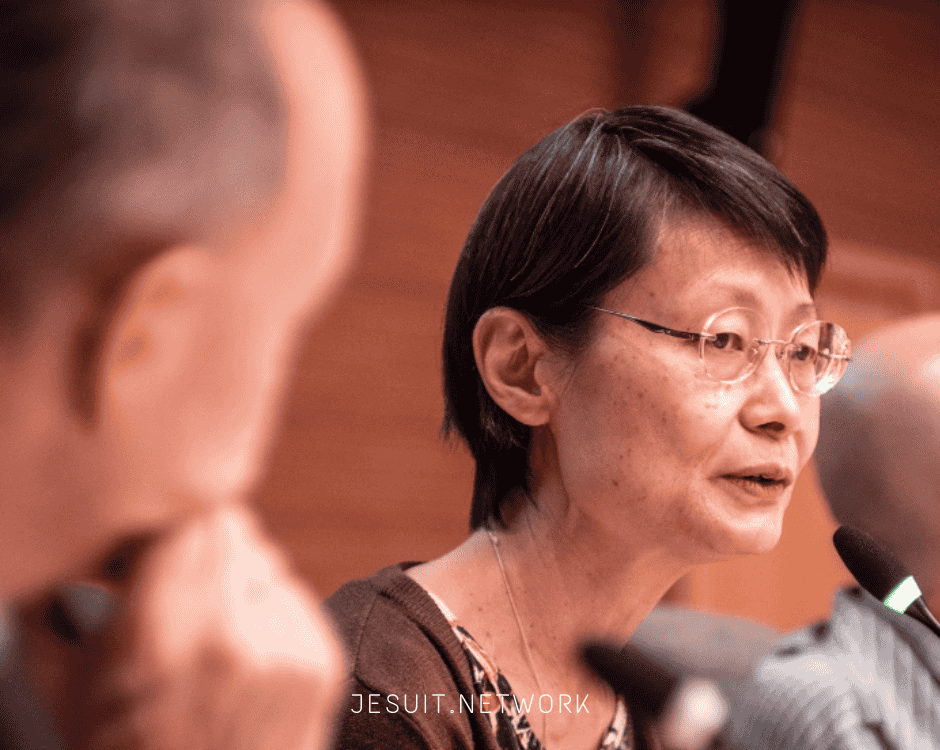Este sitio web utiliza cookies para que podamos ofrecerle la mejor experiencia de usuario posible. La información sobre cookies se almacena en su navegador y realiza funciones como reconocerle cuando vuelve a nuestro sitio web y ayudar a nuestro equipo a comprender qué secciones del sitio web le resultan más interesantes y útiles.
Lok Manch: a collaboration initiative in India to struggle for civil rights
Assessing the social delivery system of the Jesuit Conference of South Asia (JCSA) and assisted by Jesuits in Social Action (JESA) and the Jesuit-managed Indian Social Institutes of Delhi and Bengaluru, launched a programme under the banner of LOK MANCH (LM; in Gujarati means, “People’s Platform”) on 2 November 2015, after a sixteen-month long preparation. Right now, LM is directed by the National Secretariat headed by the JESA Secretary.
It is a people’s movement for the development of leadership among dalits, adivasis, women, minorities, urban as well as rural poor, and other marginalized communities of various regions, religions, and cultures. It works on the principle of collaboration with like-minded Organizations or persons or agencies, all of whom having a similar ideology or spirituality, and all aiming at social change not bolsters but promotes human dignity. This interactive network is necessary to succeed in attaining the common objective. This network consists of a hundred likeminded organizations covering 12 states of India. What makes it special is that it has been owned up by people. “LM is a platform for marginalized people like us to come together to claim our rights, to fight for our rights, to live with dignity,” recalls 27-year-old Kanchan Devi, a beneficiary of the National Food Security Act (NFSA). She comes from the Musahar community, one of the most deprived communities in Bihar. She has no land or livestock, nor does she have any income other than what she gets as a manual daily worker. NFSA empowers her and her family not with but through campaign – the right to food.
Vision and Mission
LM envisions India an egalitarian, just, inclusive, democratic, and secular nation. Its mission is to create a strong national platform for ensuring people’s improved access to Government schemes, and improving the qualities of policies and their proper implementation. That mission is carried out by discovering and training local leaders who will then lobby for the necessary changes with the present Government legal provisions and social schemes, and for the better access of impoverished households to entitlement schemes like the National Food Security Act (NFSA), Schedule Caste Sub Plan (SCSP), Tribal Sub Plan (TSP), Water, Sanitation, Hygiene (WASH) and other Governments Schemes. These schemes are used as resources and tools to enlighten and empower the grassroots leaders. Grassroots democracy is pivotal to the Nation Building. The people at grassroots should be empowered to develop themselves and their communities.
LM is guided by 11 core values: liberty, justice, equality, fraternity, love, peace, commitment, gender justice, credibility, forgiveness, and excellence. These become operational under certain core principles: decentralization, participative decision making, transparent in accountability, team work, and shared responsibility.
Composition and Administration
The entire country is divided into 4 zones, each consisting of 23 units, each unit having 4 organizations. Out of 100 Organizations that act in partnership, only 44 are Jesuit run. Each unit reaches out to about 12,000 households, in about 80 villages, with approximately 160 community leaders, and around 80 monitoring persons who can take up their own issues. Altogether a total of 5,520 such leaders will be empowered by the end of three years. They are chosen from among their own communities by the communities themselves, and they are trained to respond to the issues of yesterday, today, and tomorrow. Their praxis is “action- reflection- action” that was articulated by Paulo Freire in his Pedagogy of the Oppressed.
LM is true to its motto: ‘’together we make a difference!’’ Today, LM covers countless households and enables them to keep from starvation, which is the “unfinished task of the freedom struggle,” according to Fr George Pattery, the President of the JCSA (the Provincials conference of South Asia), who has shown great interest in LM, and encourages fellow Jesuits to implement it on war footing in every village of India.
Thanks to LM, people are organized to represent their concerns and grievances to their elected representatives and to Government bureaucracy. The dream of LM is to translate into a national movement with people’s leadership being exerted from the bottom of the pyramid. As the leadership of LM will be taken up by the people, the Jesuits and other collaborators will play accompaniment /complementary role as days go by and be willing to take orders from the leaders! Through LM, gram sabhas (village assemblies) are getting so activated and strengthened so as to work and to rebuild a new home based on human values. LM has shown Jesuits and others a new way of engaging in social action in the country and spreading the theme of GC 36.
For more details and reports: www.hamaralokmanch.net





